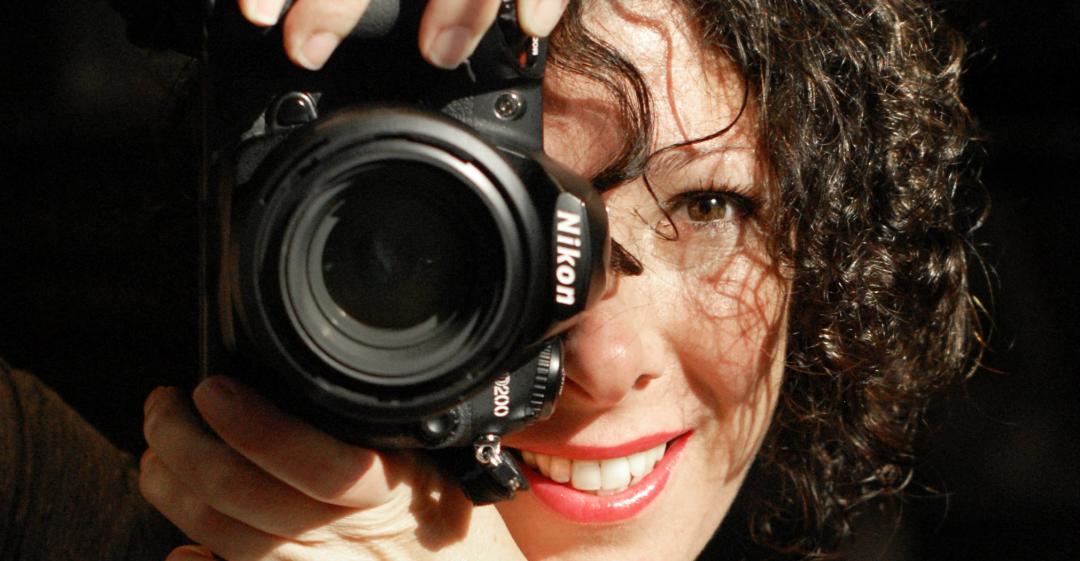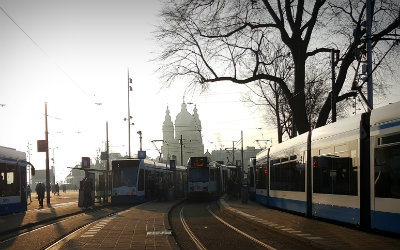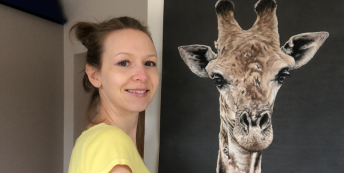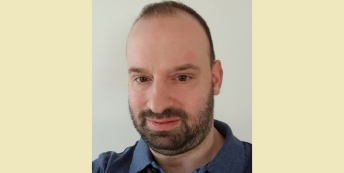“Things changed. And I didn't see a future for myself in the new work situation.”

What work were you doing previously?
I was a customer care department manager in a 2,000-employee IT company.
What are you doing now?
I'm a photographer and tour guide located in Amsterdam, in The Netherlands.
I specialise in architecture photography, portraits, urban / street photography and travel photography. I also teach photography for beginners and run urban, street and travel photography workshops.
As a tour guide I offer private walking tours in Amsterdam, and I freelance for tour operators for bigger groups that require the use of a bus.
How did you feel in your work before you decided to make the change?
I loved my corporate work very much.
I think a lot of that was thanks to the company's attitude – they gave me a lot of freedom, which I need to operate at my best.
At the beginning of each year I would get my target income for the company, and that was that. I could come and go as I pleased and do things my way, and I always knew that if I needed to consult, brainstorm or be advised, my bosses would be there for me.
I liked the nice income and the benefits, the stability, and the contact with customers.
Why did you change?
After nine years in the same position in the same company, the company was merged twice.
My bosses were replaced, the software company was bought, and the contractors were replaced.
Things changed. And I didn't see a future for myself in the new work situation.
When was the moment you decided to make the change?
A few years ago I traveled to Cuba and the Dominican Republic, where I met friends of a friend who'd left their comfortable life in The Netherlands and begun a new life there.
The travel bug in me woke up.
It took me just a couple of months to make a decision, resign, leave my apartment, pack my life into boxes and store them in my parents' attic.
Six months later, I landed in Peru.
How did you choose your new career?
I didn't choose it, it chose me.
During the year after my trip to Peru, I was still traveling. I went to New Zealand, where I met a Dutch guy who was living there and was a real estate photographer. We fell madly in love and he asked me to join his life and his business. Since I'd always been into architecture and photography was my hobby, it worked out great.
When we moved to Amsterdam I continued with real estate photography and developed the photography services the business offered.
Meanwhile, an owner of a tour operator that I knew here in Amsterdam landed a big tourism project and he needed guides. He asked me to help him out and I thought, "Why not?"
I found that I enjoy guiding immensely and that it balances the sometimes lonely job of a photographer.
Are you happy with the change?
At the time, when I left my comfortable position in the IT company, people said that it was very brave of me.
I didn't see it as brave; for me there wasn't another option.
Now I know that I'm addicted to my work. I really love what I do.
What do you miss and what don't you miss?
I miss the stability.
Knowing that at the beginning of each month I had X or X + commission income, even when I was on vacation.
I miss the benefits, like having a company car, and I miss that things like taxes were arranged by the company. I also miss having colleagues to consult and brainstorm with.
I don't miss the politics and annoying colleagues!
How did you go about making the shift?
Before I made the decision to continue the real estate photography in Amsterdam, I did market research and wrote a business plan.
I saw the potential and made a decision. From then on, it was about natural development and growth of the business – listening to the market changes, identifying new potential markets, generating ideas for new products, and so on.
What didn't go well? What wrong turns did you take?
As I see it, it all went well and I didn't take a wrong turn.
Even things that at the time I wasn't happy with, or thought could have gone differently, brought me to where I am now, and I'm happy with it. I believe that when I make a decision, it's the best decision that I can make at that given time with the information that I have.
How did you handle your finances to make your shift possible?
I had some savings and I cut down my expenses.
What was the most difficult thing about changing?
The most difficult thing about changing was that everything changed at the same time.
I didn't only change my career – I also had a new country, language, culture, a new relationship, friends...
And my father died, who was my best friend.
What help did you get? 
I didn't get any help except some good talks and some nice gestures from friends here and there.
What resources would you recommend to others?
Each person is different and each business is different, but in general, market research and a business plan are good ideas.
If you know people you trust who went through the transition themselves and they are able to support you, use that support.
What have you learnt in the process?
It was a reminder and confirmation of the fact that I can do it.
I learnt that I should listen to changes in the market and that it's OK to change or adjust my plan, as long as it's in accordance with what I love doing.
I also learnt that I should do only what I love doing and with people that I like, doing it my way, rather that following what society thinks is more prestigious.
What would you advise others to do in the same situation?
My advice would be to look deep inside and ask yourself, "Am I cut out for being self-employed?" and give yourself an honest answer.
Check the possibilities, check the calculated risks, and be loyal to yourself.
Once you make the decision, make a plan and follow it, and be prepared to work very hard.
It's a marathon (not a sprint), and it'll take time, maybe a few years before you see significant 'success'. There are ups and downs along the way as well as setbacks that you have no control over. Stay tuned to external and internal changes and adjust accordingly as long as it's aligned with you.
To find out more about Inbal's work, visit www.inbalturshalom.com.
What lessons could you take from Inbal's story to use in your own career change? Let us know in the comments below.



